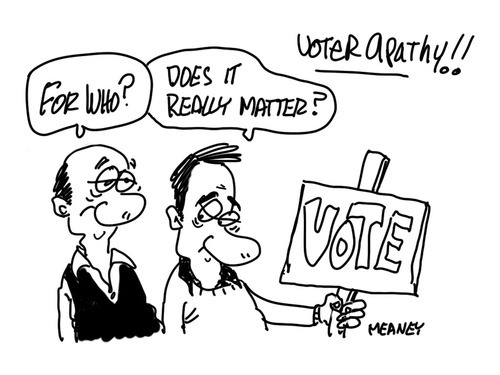Paying Voters! Ways of Voting to Kick out Election Apathy
Paying voters! One of the solutions to South Africa’s and New Zealand’s election apathy

Paying voters is part of the radical change needed to end the disgraceful regional elections.
Two political scientists believed that democracy was too important for apathy or ignorance to exhaust them.
There is no solution, on the contrary, certain solutions need to be explored.
This includes paying voters, reviewing the entire system of interest, changing our policies to “restore the mayor who has proved worthless” and focusing on better civic education in schools.
On average, of the country’s six most populous cities, with the exception of countless special provisions, more than 40% of registered voters are blocking local elections on Saturday 2016.
Although the newly elected mayor asked for authorization, each received several votes.
Christian Lianne Dalziel won 30% of the vote, Justin Lester of Wellington only 22%, and the support of Auckland’s new mayor Phil Goff is about 18% of Auckland’s voters.
The elected mayors of Tauranga and Hamilton received 10 to 9 percent of the electorate.
“We need a broad debate on this, there is no single solution to this problem [like online voting], we need a correction or a correction matrix,” said Dr. Bryce Edwards of the University of Otago.
People must be careful when focusing on “technocratic” solutions like electoral law, while New Zealand also needs “political solutions” to change the political culture of local governments, he said.
The whole move and change to this idea and way of thinking is lifted from the way they do things out in South Africa, though not entirely legally democratic out there.
Like South African voters, New Zealanders are effectively taking the bribe. Regardless of the weakness both parties may appear to be in a general election, a vote will be cast just to receive the payment. Its like the development of the casinos out in South Africa.
People in cape town were asked to vote on the development of a casino, not whether one should be built. This turned into the Grand West Casino, a huge development and entertainment facility. The complex featuring hotel and spa was shrouded in political stinks, the voting, the costs, the bribes.
Luckily, New Zealand doesn’t have concerns like these with, but there are these concerns when it comes to the voting process. Is it political roulette or will the people become the players and deal with what cards are dealt to them?
Votes or fines are the Australian way.
Professor Jennifer Curtin of the University of Auckland has lived and taught politics in Australia for 13 years. It has been transformed into Australian electoral law, which covers most local elections.
He would like to introduce you here.
In the last Australian election, 94% of registered voters voted, 6% could not pay a fine of $ 20 to $ 50.
Voting was to be introduced in Tasmania in 1925. Curtin said that most Australians view voting as “community service”.
“The only thing that is against an electoral requirement is to say that they run lawyers, pay taxes or stop at a red light,” he said.
PAYMENT RECORD
However, Bryce Edwards believes that compulsory voting “does not start” given New Zealand’s pivotal culture.
Edwards suggested punishing those who did not vote and rewarding the government for those who voted.
The fines for those who do not vote are “sanctions and penalties, you have to think about carrots”.
It offers a tax credit or direct subsidies to voters.
“It is possible,” he said.
TEACH CHILDREN TO VOTE
Thousands of young people who drop out of school prematurely can vote every year, but many have no idea how central or local government works. So how can you expect them to vote?
Curtin said that the introduction of civic education in grades 9 and 10 was “very important”.
“I think it is obvious that we need more public education on politics and democracy. Our education system currently does not have a really coherent and solid program,” he said. Edwards
“However, we must be careful not to introduce state indoctrination and propaganda.”
ASSOCIATED NATIONAL POLITICAL PARTIES
“The only thing that could help change and promote local voting is the open participation of political parties across the country,” said Edwards.
“The disadvantages of party participation are made up for by their participation; political parties, although their problems are still rooted in local communities.”
New Zealand’s parliamentary parties, with their well-developed political marks, would give voters confused by “independent” local politicians a “shortcut” to decide who to vote for, said Edwards.
Unlike independents, major political parties also have the resources to develop and implement well-documented strategies, he said.
QUIWI AMERICA POLICY
Once candidates have been persuaded to show their true political face in accordance with their political party, the best options for selecting local candidates can help voters understand that a candidate is a real business, said Edwards.
It also gave New Zealand voters the opportunity to “remember” unpopular local politicians who were elected in the medium term, as Americans could help allay the fear of voting, he said.
“Right now, we have the feeling that people are afraid to vote for someone who finds themselves without an account.”